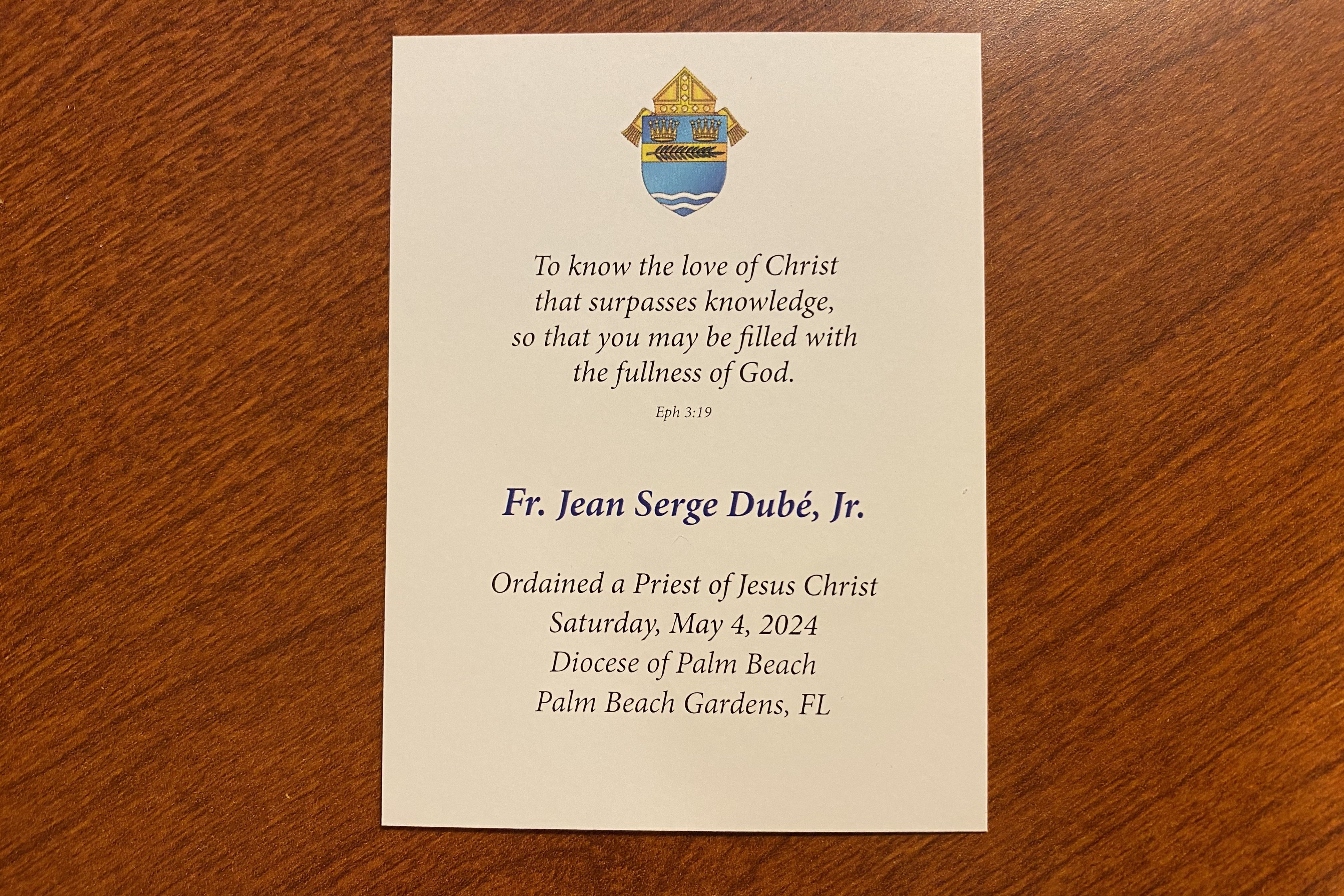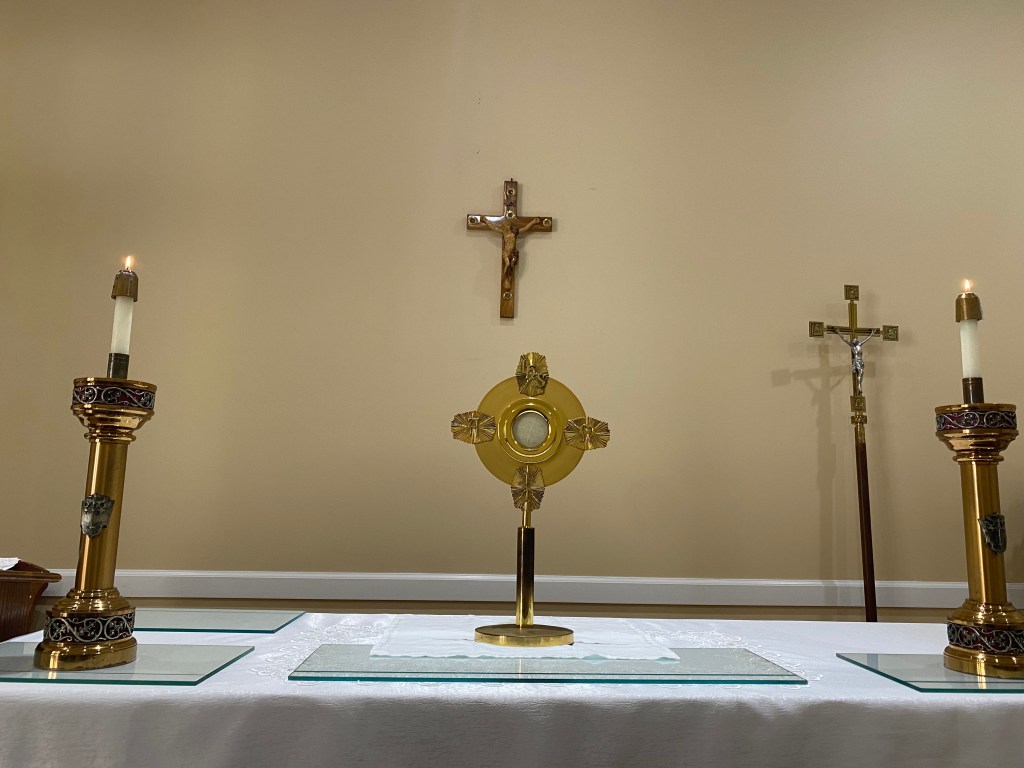Today we return to Jesus’ teaching that he is the vine, and we are the branches. The key points of this teaching are that apart from Jesus we can do nothing, and all things are possible when we stay connected to him!
The goal for us then as disciples of Jesus is to stay connected to Jesus. One way that can help is the Our Father or Lord’s prayer. This is the prayer that Jesus taught his apostles when they asked him to teach them to pray, and since that day when he taught them, generation after generation, up to and including this moment, this prayer has been prayed!
Rote prayers are powerful, but they can also lose their punch if we are not attentive to what we are saying. One helpful way to revisit the Lord’s Prayer is to do so from the perspective of allowing it to help us to see how these words can come alive in our meditation and help us to grow in our relationship with Jesus and stay connected to him.
Our Father, who art in heaven, hallowed be thy name…
These first words help us to get in touch with the reality that God is God, and we are not. We are his created beings. God is completely transcendent and beyond us while at the same time intimately close in that we can have a relationship with him. This happens not because of anything we can do, for God is so beyond our comprehension that we will never be able to comprehend him. We can grow our relationship with God because he has made us in his image and likeness, he comes close to us, most especially in the sending of his Son to be human with us so that we can be divine like him. God is so far beyond us as infinite, yet as St. Augustine taught, closer to us than we are to ourselves.
Thy kingdom come, thy will be done on earth as it is in heaven…
We remain close to Jesus and so with our Father and experience the love of the Holy Spirit as we grow in relationship with him, trust him, and follow his guidance. We need to resist the temptation of going it alone, thinking we know better than God, and not including him in our discernment. His kingdom is made more present when we collaborate with him, when we follow his will so that what is practiced in heaven, intimacy with God, will happen on earth. In following the will of God to love as Jesus loves us, we take care of one another, empower and challenge one another, and will each other’s good.
Give us this day our daily bread…
When we trust God, he will not only provide for our needs, but he will also provide himself in the Eucharist. We can get no closer than consuming his Son whom he sent. We are divinized, made like God as we consume the Body and Blood of Jesus. Our regular participation in the Mass transforms us, strengthens us, and unites us. Heaven and earth become one during the celebration of the Mass!
And forgive us our trespasses as we forgive those who trespass against us…
Forgiveness we do not do well, but it is a powerful way to unite, a powerful way to heal and grow in our relationship with God and one another. When we have the humility to seek forgiveness and forgive, we experience healing and maturation. We free ourselves from hate and division because we resist the temptation of curving in upon ourselves and perpetuating the hurt that has been committed. We can choose instead to trust in God and collaborate with him to bring about healing and transformation.
Lead us not into temptation but deliver us from evil…
God does not tempt us, but he does allow us to be tempted. He loves us so much that he is willing to risk that we will choose someone or something over him. Our closeness and intimacy with Jesus grow, when we trust and choose to be with him of our own free will. Each yes to Jesus, each moment we devote to him increases the love we receive and experience such that we will better see the lies, the false illusions, and the temptations of the enemy that lead us away from our Father.
The father of lies tempts us and condemns us when we fall. Our Father leads us gently with tender chords of love, forgives us even when we reject him, and never tires of forgiving us. He invites us to turn back to him, time and again, no matter how far we think that we have turned away. When we turn back to him, we will become aware that he is right there with his arms wide open waiting for us, to embrace us and love us more than we can ever imagine!
As we meditate on each part of the Our Father in this way, Jesus will offer each of us our own unique ways of remaining connected to him as a branch is to the vine, and so with trusting in Jesus, all things are possible.
Amen!
Photo: Praying in the adoration chapel of Our Lady of the Angels Cathedral, Los Angeles, CA back in 2019.
Link for the Mass readings for Wednesday, May 1, 2024











